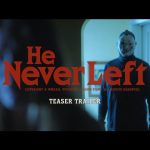30 Days of Night (2007)
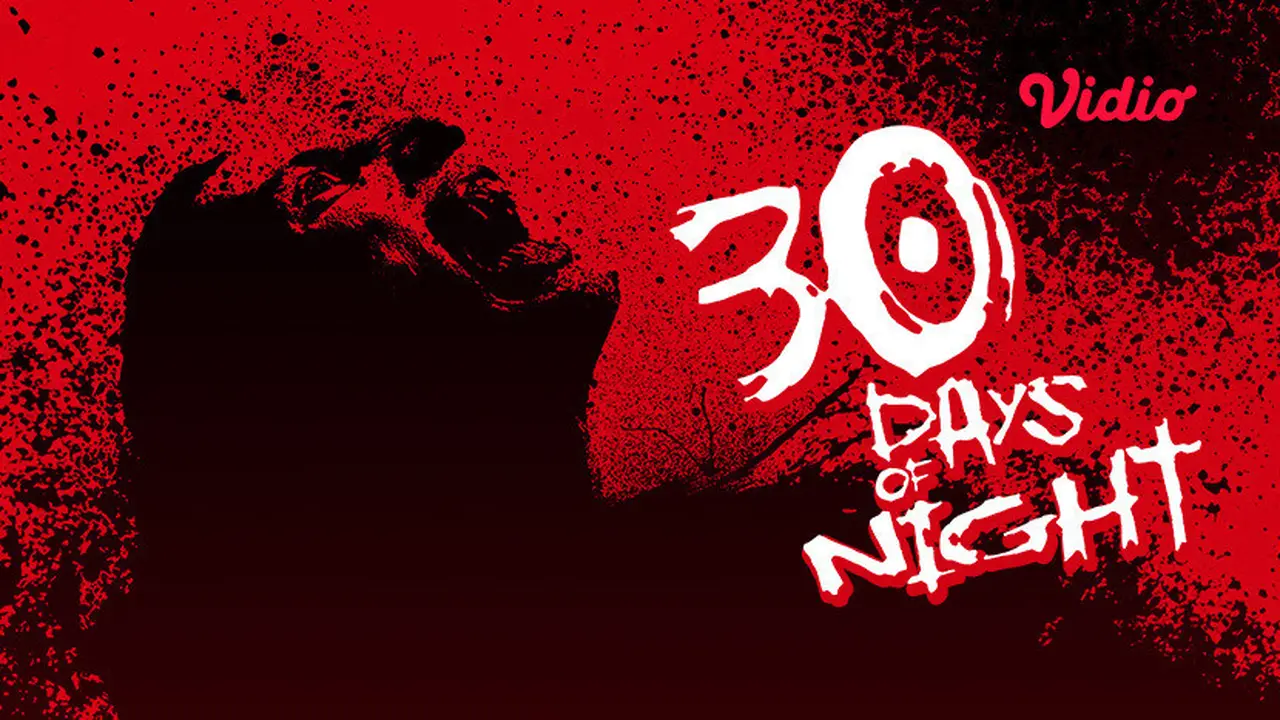
30 Days of Night (2007) – Comprehensive Review
🧛♂️🌑❄️🔪
Overview
30 Days of Night (2007) is a grisly horror film directed by David Slade and based on the graphic novel by Steve Niles and Ben Templesmith. Set in the remote Alaskan town of Barrow, where the sun sets for an entire month each year, the film weaves a chilling narrative of isolation, survival, and the primal fear of the unknown. Known for its relentless tension and visceral violence, 30 Days of Night stands out as a modern, atmospheric vampire story that eschews the romanticized tropes of the genre in favor of raw brutality.
Plot Summary
The story unfolds in Barrow, Alaska, as the town’s inhabitants prepare for the annual period of darkness when the sun disappears below the horizon for thirty days. Just before the long night begins, mysterious acts of sabotage occur: cell phones are destroyed, sled dogs are slaughtered, and the local power is cut off. The townsfolk soon realize that these are not random acts of vandalism, but the calculated moves of a pack of vampires who have come to feast with no sunrise to fear.
Eben Oleson (Josh Hartnett), the town’s sheriff, and Stella Oleson (Melissa George), his estranged wife and a fire marshal, find themselves at the forefront of the crisis. Along with a small group of survivors, they must outthink and outrun the vampires, led by a ruthless and ancient leader known as Marlow (Danny Huston). As the body count rises and hope seems lost, the survivors resort to desperate measures, risking their own humanity to save what remains of their community.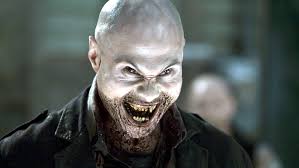
Characters and Performances
- Eben Oleson (Josh Hartnett): Hartnett delivers a stoic and determined performance as the town’s sheriff, who must rise to the occasion as both protector and strategist. Eben’s quiet courage and willingness to sacrifice himself underscore the film’s themes of duty and humanity.
- Stella Oleson (Melissa George): George portrays Stella as resourceful and empathetic, a counterbalance to Eben’s more rigid demeanor. Her leadership qualities and resilience reflect the strength of the human spirit even under extreme duress.
- Marlow (Danny Huston): As the leader of the vampire clan, Huston’s portrayal is ferocious and otherworldly. He communicates through a harsh, ancient language and exudes a predatory aura that defines the predators as a primal force of nature rather than just mythic creatures.
- Supporting Cast: Actors like Ben Foster, Mark Boone Junior, and Manu Bennett contribute memorable performances as townsfolk and outsiders caught in the horrific ordeal. Their varying reactions to fear—ranging from panic to stoic acceptance—provide depth to the ensemble.
Themes and Direction
- Isolation and Survival: The film’s remote Arctic setting amplifies feelings of isolation and helplessness. With no escape and no sunrise, the survivors’ fight for life becomes a raw struggle against the elements and a relentless enemy.
- Loss of Humanity: As the siege continues, both the vampires and the humans face moral dilemmas. The vampires embody primal evil, while the humans must confront their capacity for violence, revealing that desperation can push anyone toward barbarity.
- Nature vs. Civilization: The town’s vulnerability to the long Arctic night represents the fragility of human civilization in the face of nature’s cruelty. The vampires are symbolic of nature’s merciless indifference, challenging the concept that modern communities are safe havens.
David Slade’s direction emphasizes gritty realism, using practical effects and minimal CGI to enhance the terror. His use of darkness, silence, and sudden bursts of violence creates a claustrophobic atmosphere that keeps audiences on edge from start to finish.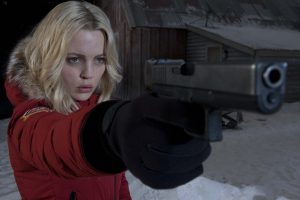
Visuals and Cinematography
Cinematographer Jo Willems captures the stark beauty and hostile cold of the Arctic setting. The predominantly dark and desaturated palette reflects the absence of sunlight, and the contrast of blood against snow intensifies the film’s brutal imagery. The camera work often relies on long takes and wide shots to highlight the town’s vulnerability and the thin line separating survivors from predators.
Music and Soundtrack
Composer Brian Reitzell’s score is understated, favoring ambient tones and minimalistic soundscapes over traditional melodies. This approach heightens tension by leaving viewers constantly braced for sudden horror. The sound design, from the vampires’ chilling shrieks to the crunch of snow underfoot, plays a crucial role in building an unsettling and immersive experience.
Critical Reception
30 Days of Night received generally positive reviews for its fresh take on the vampire genre. Critics praised the film’s relentless tension, striking visuals, and commitment to a harsher, more animalistic portrayal of vampires. While some viewers found the movie’s pacing and character development lacking, the overall consensus was that it delivered on atmosphere and visceral dread.
- Rotten Tomatoes: Around 51% critics’ approval at the time, with audiences more favorable due to the film’s intense horror elements.
- Metacritic: Score of around 53, indicating mixed or average reviews.
Fans of horror and creature features appreciated its refusal to romanticize vampires, while casual audiences were drawn to its survivalist narrative and inventive setting.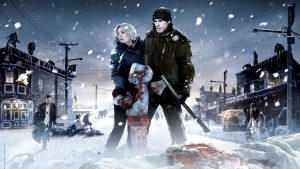
Box Office and Cultural Impact
30 Days of Night performed modestly at the box office, grossing over $75 million worldwide on a relatively modest budget. Over time, it has gained a cult following, often cited as one of the more memorable vampire films of the 2000s for its unique setting and unflinching brutality.
The movie’s portrayal of vampires as feral and merciless hunters influenced subsequent horror films and shows that chose to focus on the monstrous aspects of vampirism rather than the charismatic or romantic tropes.
Conclusion
30 Days of Night (2007) stands as a gripping, unyielding horror entry that challenges the conventional allure of vampires. By placing the action in a remote and lightless environment, the film intensifies the sense of dread and underscores the precariousness of life. With strong performances, particularly from Josh Hartnett and Danny Huston, combined with David Slade’s atmospheric direction, 30 Days of Night leaves a lasting impression as a cold-blooded and atmospheric thrill ride.






